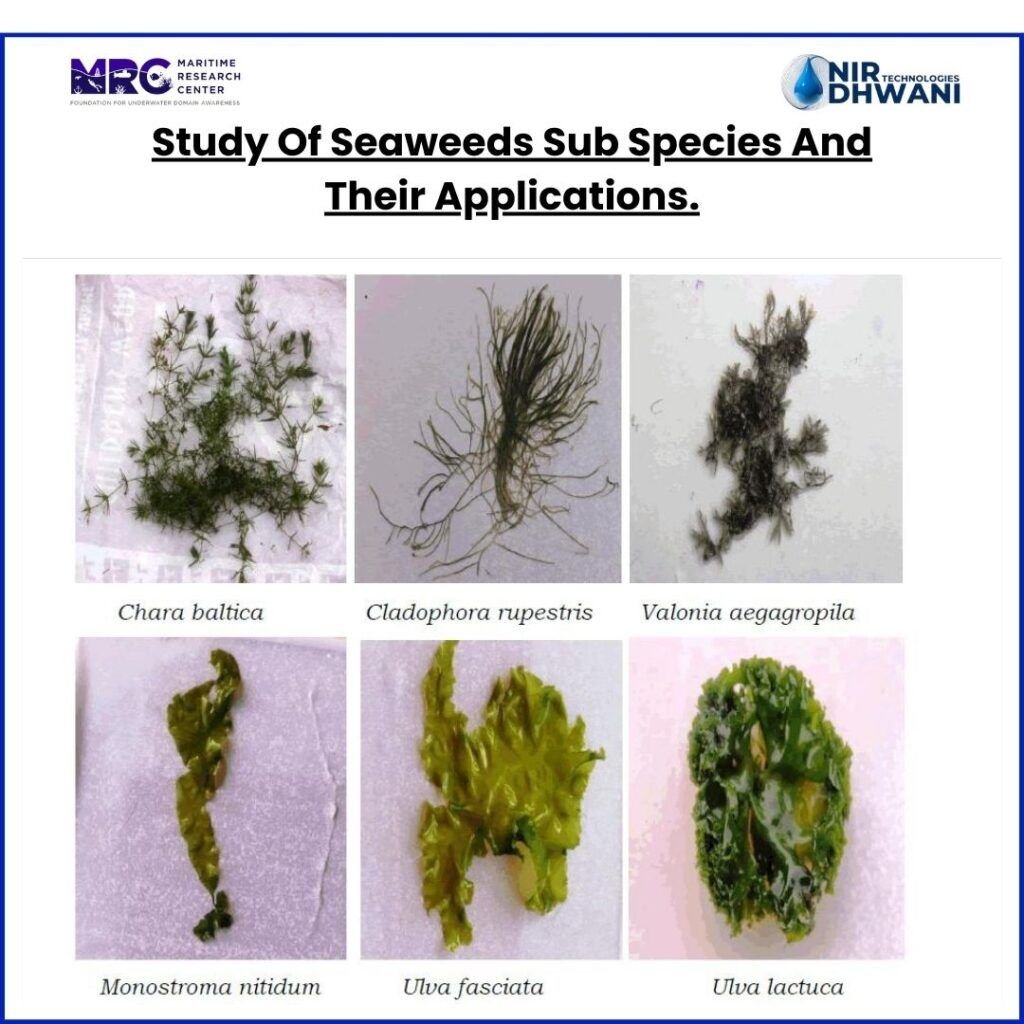Seaweeds are macroalgae found along coastlines worldwide, classified into brown, red, and green algae. They serve as a foundation of aquatic food chains and are rich in nutrients like proteins, lipids, and vitamins. Seaweeds offer a wide range of applications in industries like food, cosmetics, and pharmaceuticals, and are known for their health benefits, including anti-cancer and anti-inflammatory properties. They also contribute to environmental sustainability by acting as carbon sinks and reducing eutrophication. In India, there is great potential for seaweed farming, with government support through programs like the Pradhan Mantri Matsya Sampada Yojana. Despite this, the current production lags behind available resources, indicating a significant opportunity for growth.
- Seaweeds are macrophytic algae found in coastal regions globally, belonging to the Plantae kingdom.
- Seaweeds are essential in aquatic ecosystems, serving as the foundation of the food chain.
- They are rich in proteins, lipids, dietary fibers, vitamins (including A, K, and B12), minerals, and trace elements.
- Seaweeds find applications in various industries including food, feed, cosmetics, agriculture, pharmaceuticals, and biotechnology.
- Seaweeds have significant health benefits, including anti-cancer, antiviral, antidiabetic, and neuroprotective properties.
- India has a rich diversity of seaweeds, with 844 species reported, but farmed production is currently low.
- The government of India is promoting seaweed farming through initiatives like the Pradhan Mantri Matsya Sampada Yojana.
- Developing the necessary infrastructure for seaweed farms, including offshore equipment, nurseries, and processing facilities, can be a challenge.
- Intensive seaweed farming may have ecological consequences, such as altering light availability and sedimentation rates in coastal ecosystems.
- Adhering to environmental regulations and obtaining the required permits for seaweed farming can be complex and time-consuming.
- Balancing seaweed cultivation with sustainable practices that minimize environmental impacts and maintain ecosystem health is crucial.
- Seaweeds have a wide range of applications in various industries including food, cosmetics, agriculture, pharmaceuticals, and biotechnology, presenting opportunities for product development and innovation.
- The rich nutritional content and bioactive compounds in seaweeds offer opportunities for developing new health and wellness products, dietary supplements, and pharmaceuticals.
- Seaweed farming contributes to carbon storage and can be used as a sustainable biomass source for biofuels and chemicals, offering opportunities for eco-friendly alternatives.
- Seaweed farming can serve as an additional livelihood option for coastal communities, contributing to socio-economic upliftment and resilience to climate change impacts.



Leave a Reply